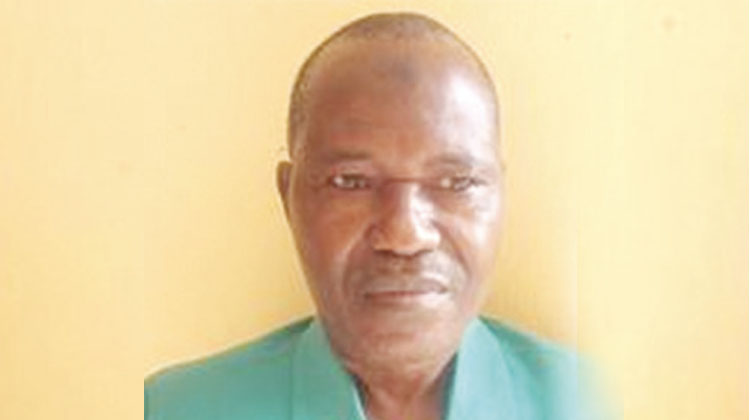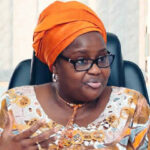
The West African sub-region has been witnessing a spate of coups in recent times and fear is gripping leaders of coup-free countries that it might be their turn tomorrow if stringent actions are not taken on behalf of the current victims. The fear may becloud their judgement to look beyond the surface of the actions. Are there internal or external economic shocks or external political machinations to destabilise the sub-region? Is there a bait somewhere to cause confusion among neighbouring countries and divert attention from local problems, which will invariably consume the leadership of the neighbours?
On actions being processed or contemplated presently, have leaders of the Economic Community of West African States really obtained some specialist inputs in their decision-making? Are these countries economically buoyant to intervene in a war-like manner? War is not a cheap commodity and the execution of war remains very expensive. For sure, the Nigerian economy cannot support any form of war for now. Not even the war that can backfire on the nation. Disrupting the peace in Niger or any of the neighbouring countries will result in migration into Nigeria; thereby leading to pressure on our meagre resources, and in the case of the Niger Republic, swelling the dwindled, truncated and weakened population of Boko Haram society to come alive with attendant mayhem.
There are studies showing that when Nigeria is in an economic quagmire, her neighbours like Benin Republic, Niger, and even Cameroon, suffer deeper economic problems. Policy changes in Nigeria often impact these economies, as attested to when the fuel subsidy was removed and the price of fuel suddenly went up. Reactions from citizens of the neighbouring countries were instantaneous and destabilising. So, if the coup in Niger is based on economic considerations, the only way to help them is to improve our economy. Any type of war in the name of restoring democracy in Niger will worsen Nigeria’s economy and impact negatively on Niger Republic. What is democracy without the dividend of democracy?
Recent economic statistics on Africa show that the West African sub-region remains the weakest economic link on the continent. With Nigeria’s population of over 200 million, the sub-region has the largest population and harbours the largest economy (Nigeria) in Africa. That is where the favourable statistics starts and stops. The region has low human capital development, low literacy level, and a high mortality rate with an average life expectancy of less than 70 years. Most of the countries have not been able to achieve a large number of the United Nations Sustainable Development Goals, which is a global development plan for poor countries in the world.
The Niger Republic is one of the poorest countries in Africa with a per capita income of $590. The literacy level is 37.34 per cent as of 2021 but the employment rate is 73.06 per cent in 2022 which means it has one of the lowest unemployment levels in Africa. The service sector employs most of the people even though agriculture contributes about 87 per cent to the economy. The country is rich in some minerals like uranium and petroleum that its coloniser, France, is interested in and waiting to pounce on in the event of a civil or induced war in the name of protecting its interest. As soon as ECOWAS, particularly Nigeria, attacks, France will come down heavily, lying to protect the country instead of the minerals she wants to exploit freely, and disgrace ECOWAS as intruders. Of course, ECOWAS, even as a group, would not be able to match France’s military power.
The initial reactions of ECOWAS are understandable, while the role that President Bola Tinubu has played as its chairman, like a call for meeting immediately to fashion out actions to be taken, are also laudable. Tinubu promised, at his inauguration, to help deepen democracy in the sub-region, albeit, some of his actions were hasty. Giving a sovereign government one-week or one-month ultimatum to reverse a coup was to turn the whole activities and attendant risks a huge joke. Those who were involved in the action and those who had been involved before knew how much plan went into plotting a coup. Have we asked why the coup was successful? Why did the citizens jubilate and what did the jubilation signify?
Many advanced countries intervene or even deliberately cause wars around the world based on what they gain from such. There is always a national interest attached to it. The national interests are both political and economic. The political reasons would include showcasing their might to serve as a warning to neighbours, or attraction to weak countries looking for a big brother to lean on if they are threatened by some big powers. The main thing is economic. It serves as an opportunity to advertise and get patronage for their war arsenal or new technology in war machines to oppressive governments in developing countries. As they get such customers for the war equipment, the factories wake up to generate employment and income as well as promote research into new types of war equipment for future reference.
Many of these advanced countries are able to intervene because of the strong economy in the background and the resultant economic returns they will get in the end. When the United States of America states that it will take billions of dollars to rebuild a war-torn country, it does not mean that it will be involved in the rebuilding for nothing. They would assist the country to the level that the country can provide funds from borrowing and grants. The only cost to them is to help estimate what it will cost to rebuild the war-ravaged economy. The addition might be to supply old, out-modelled equipment that would have constituted storage problems to their economy. That is why no country that got entangled in war has ever fully recovered. The weakened economy suffers on its own.
African countries must be careful not to get used to cause wars as proxies for these advanced countries. They have never wanted us to get together. The concept of divide and rule is very common in their political syllabus. We should not be the ones to help them implement such course outlines. African and other smaller countries must be cautious in creating enmity among their rank and file. Fortunately, we have experienced historians, political scientists and international relations specialists who can give advice on this gratis. Unfortunately, African governments are not used to listening to their experts but prefer advice from abroad, just as we (both the governments and citizens) put a premium on imports against domestic commodities or products.
Only good governance can prevent a coup. I wish sociologists would have studied and documented characteristics or behaviour across sub-regions in Africa. Based on some travels, I can hazard some guesses that while southern African citizens are quite patient and forward-looking in democratic settings and the Central and East African citizens are somewhat patient and docile, the West Africans are impatient, tough and somewhat erratic, having gone and still going through undeserved pains in the hands of their leaders and outsiders. That could be the rationale for the regular and current coups in this area. Imagine what the francophone countries are still going through in the hands of France when other colonial governments have given high latitude to their former colonies. Some citizens of Niger Republic say they support the coup because they want the exploitation to stop.
All the initial actions Tinubu took, like closing the border, suspending flights, and halting economic relations with the Niger government, were, based on my thought, the usual Lagos ‘boy’ shakara to send jitters to the leadership of Niger whom, I expected as a soldier, to wave them off with counter military bravado. But when the President started requesting permission from the National Assembly to use force, I thought Nigerians, beyond the National Assembly, must intervene to caution the President. They have done so and the President must listen.
Never mind the disputed figures which indicate that Nigeria is the largest economy in Africa instead of being the most fragile economy, given all the unfavourable statistics on high population growth, low production, high unemployment rate, low per capita income, near galloping inflation, low foreign reserves, the debt trap, prostrate exchange rate and high proportion of poverty within the population. The government cannot afford to use the savings from fuel subsidy to prosecute war in another country or add to the debt burden of the nation by engaging in an avoidable war. The focus for now is how to make our economy give us the dividends of democracy.





